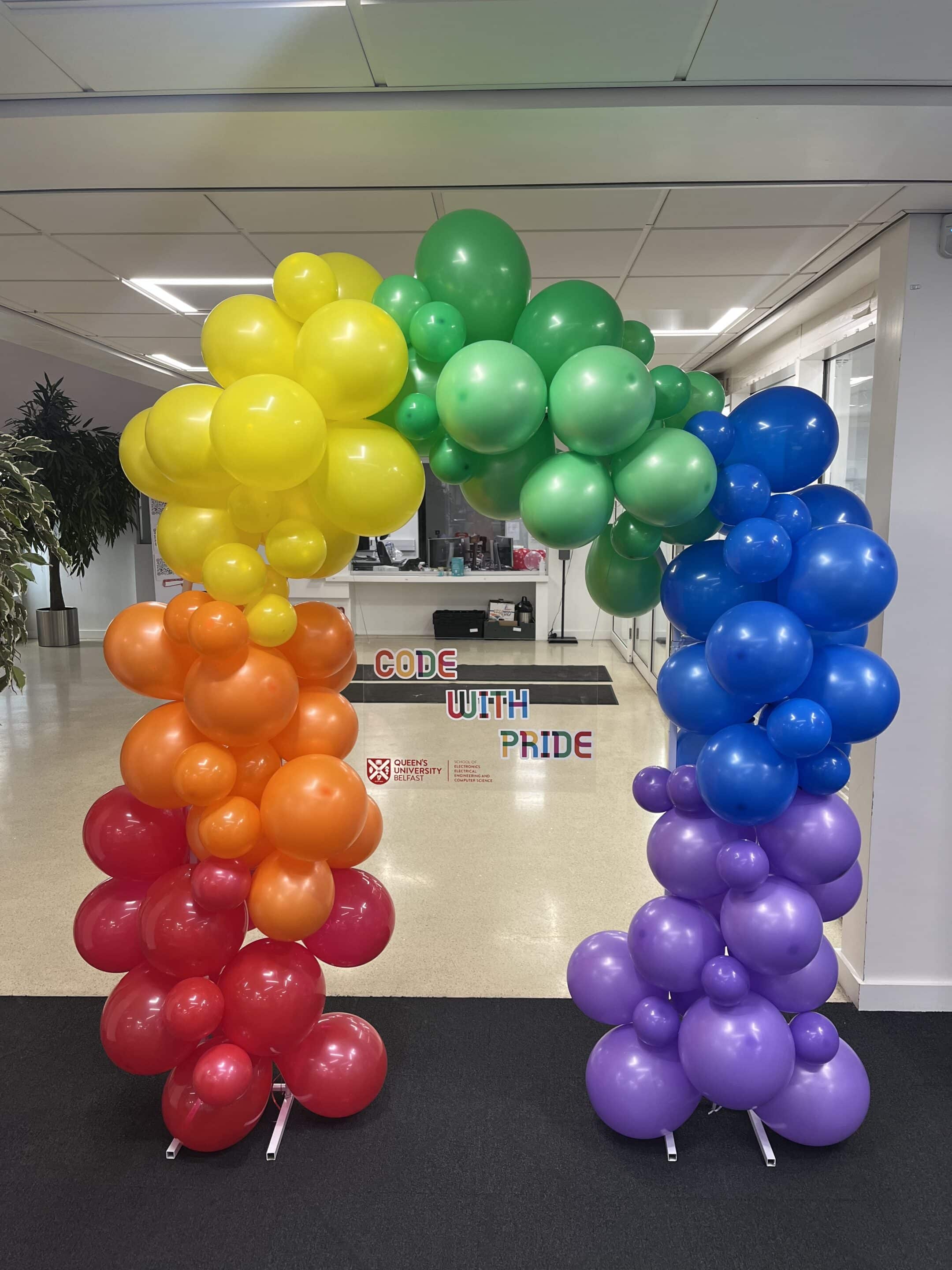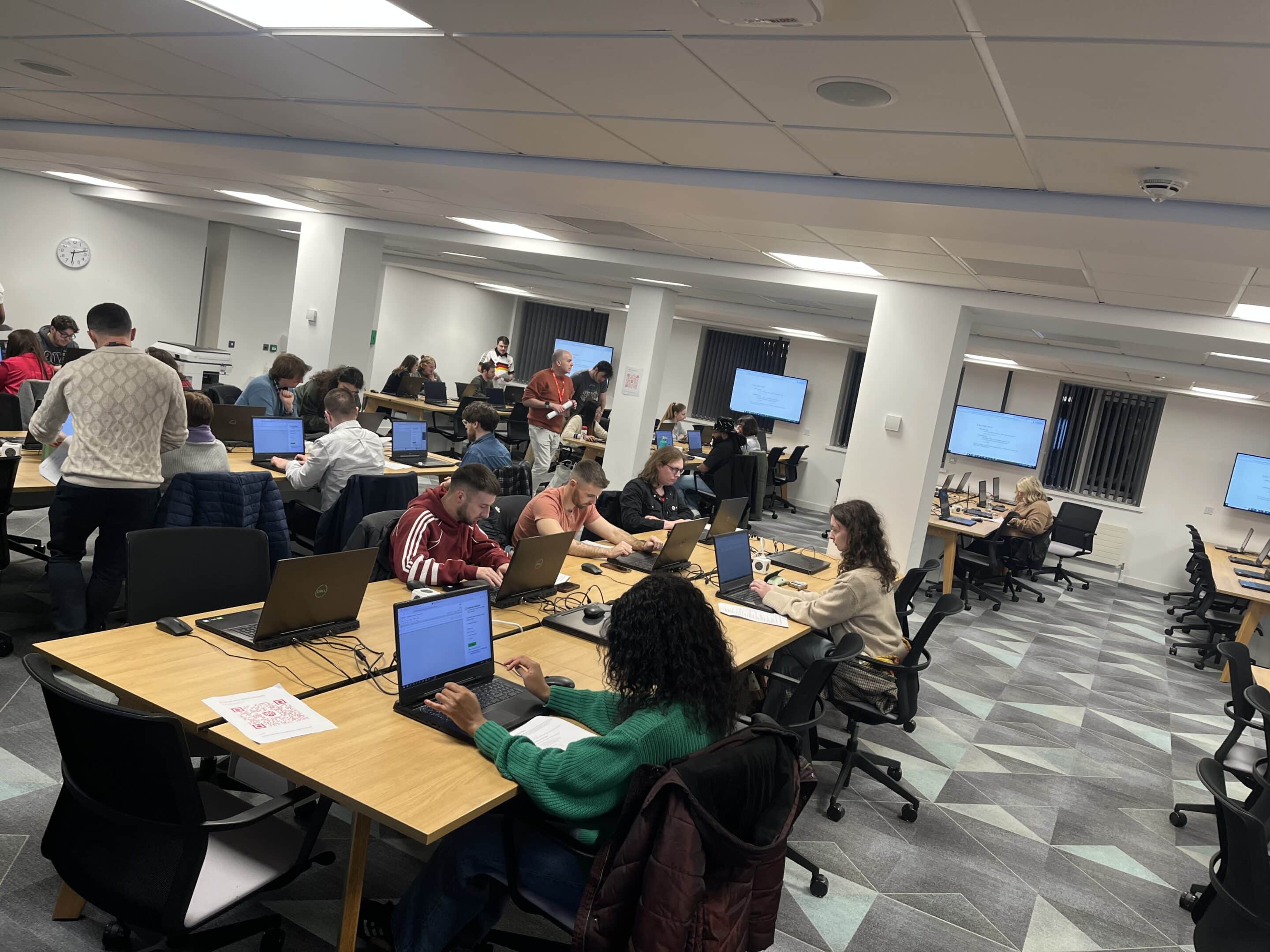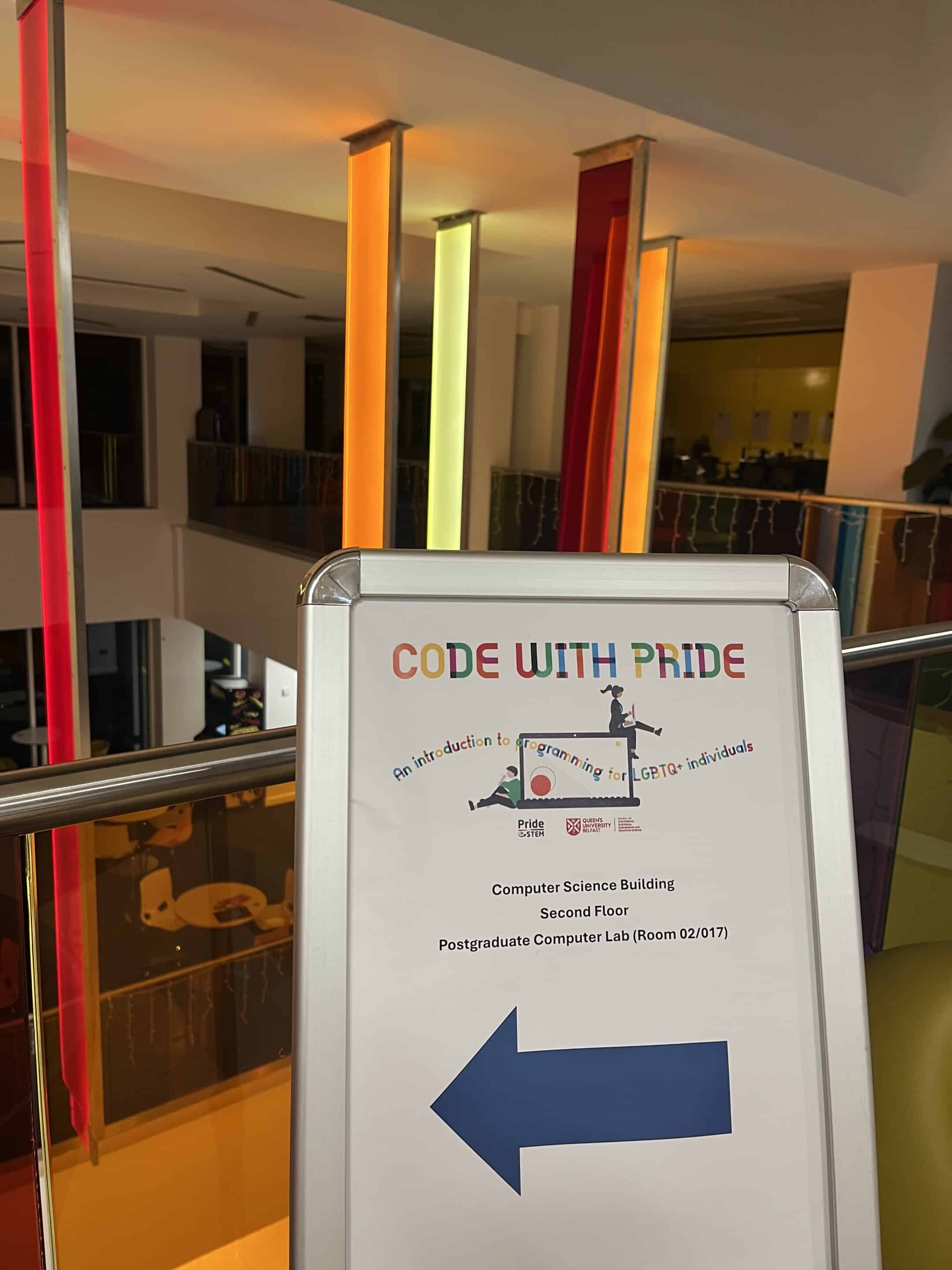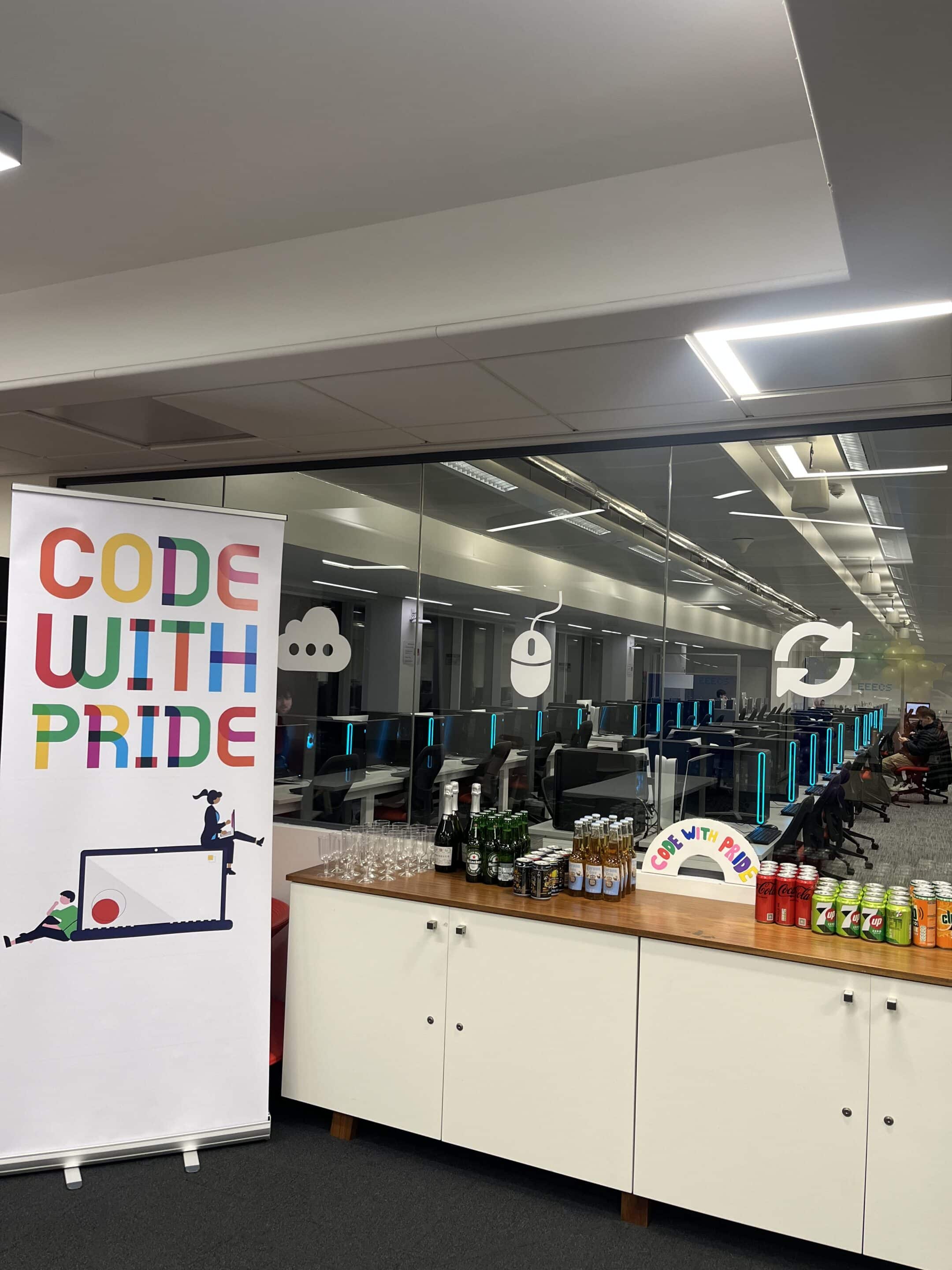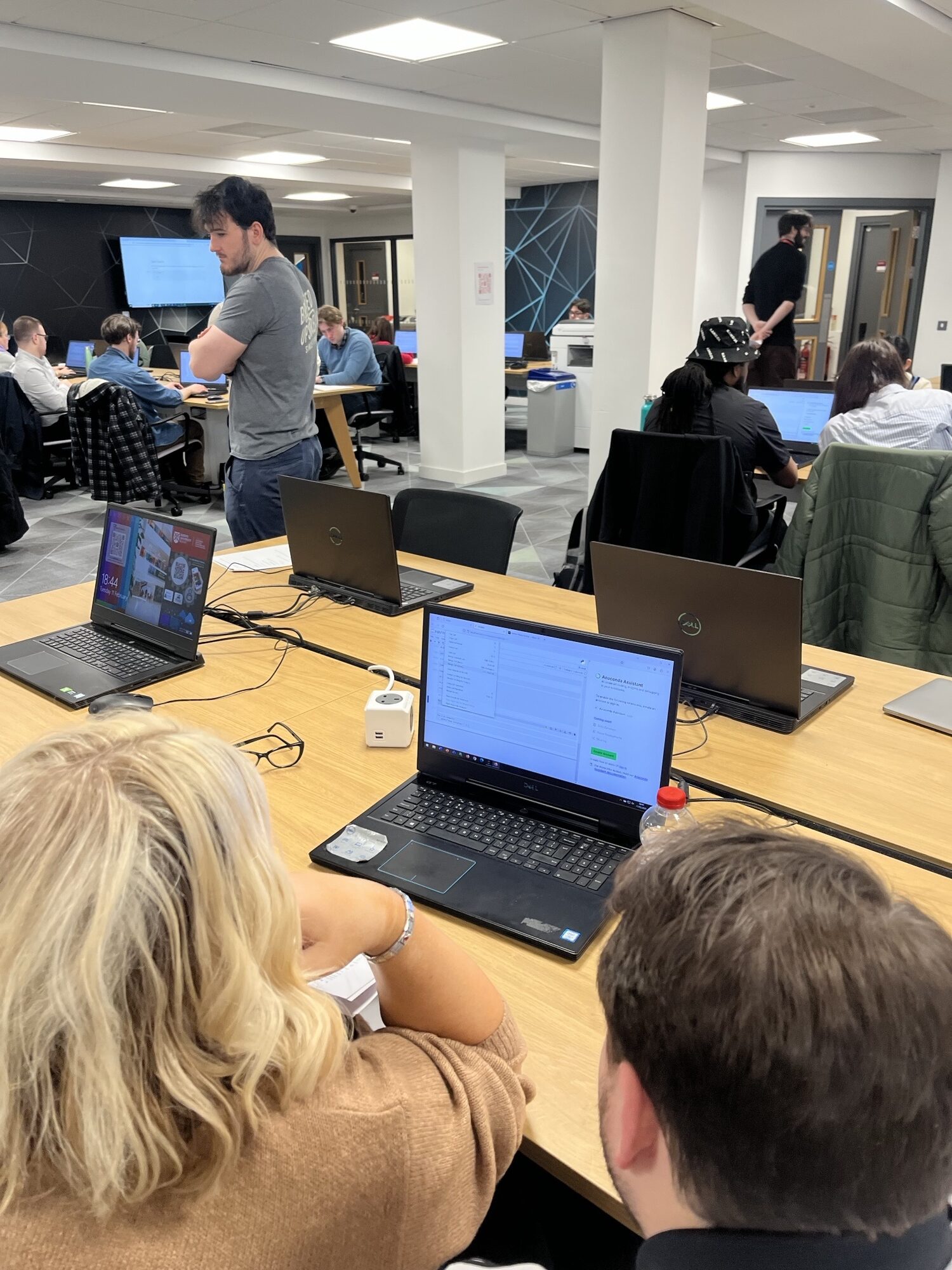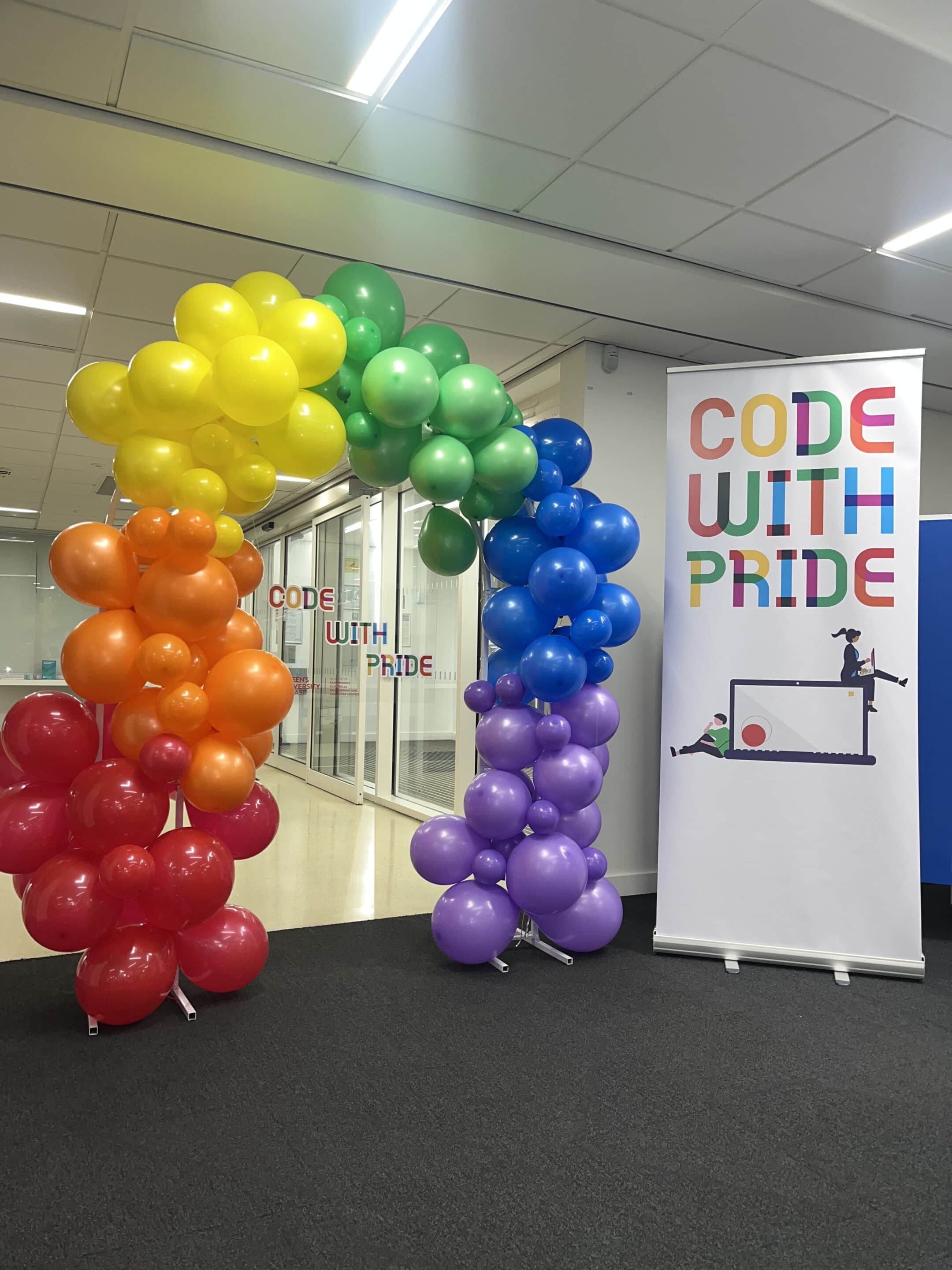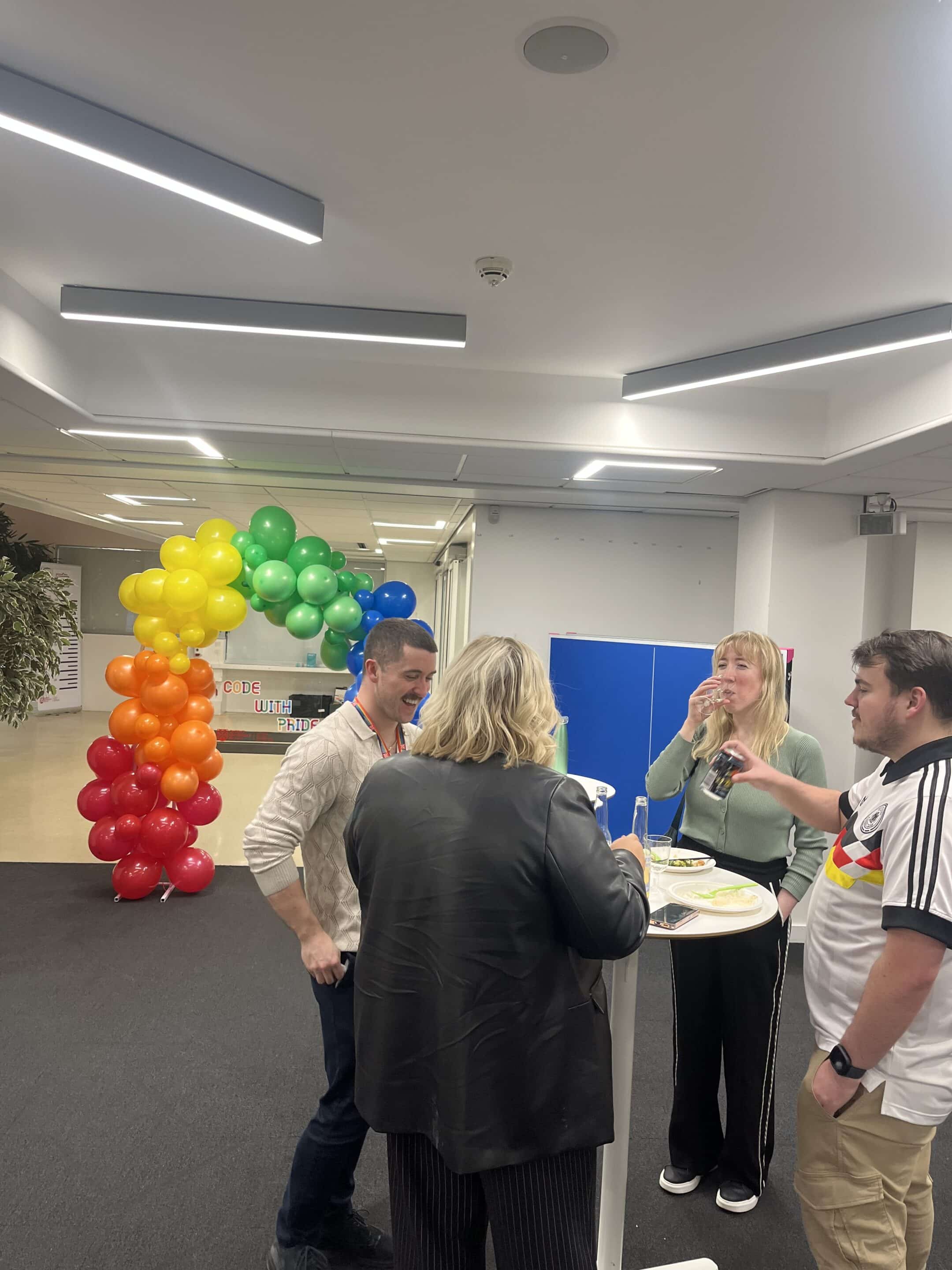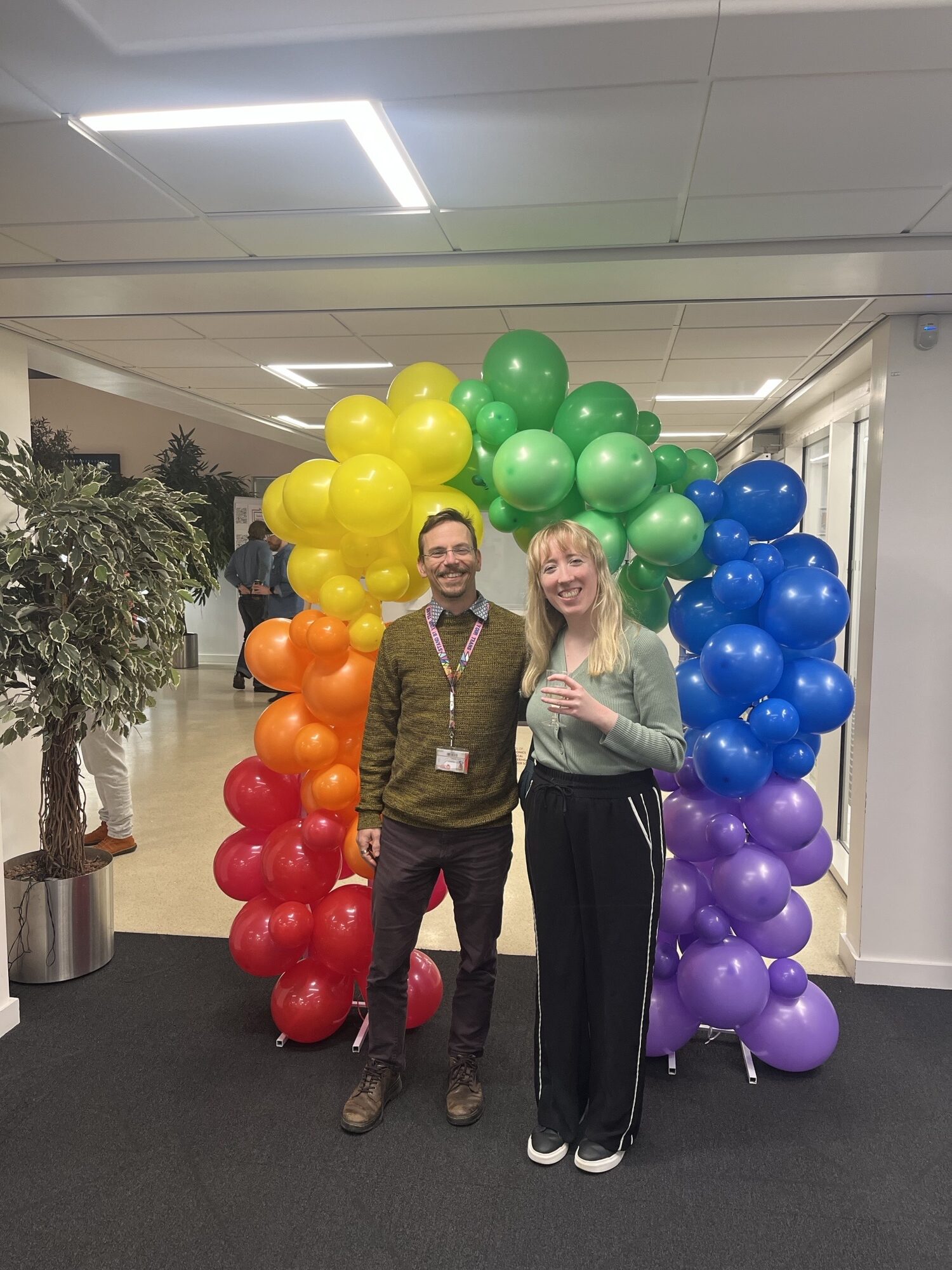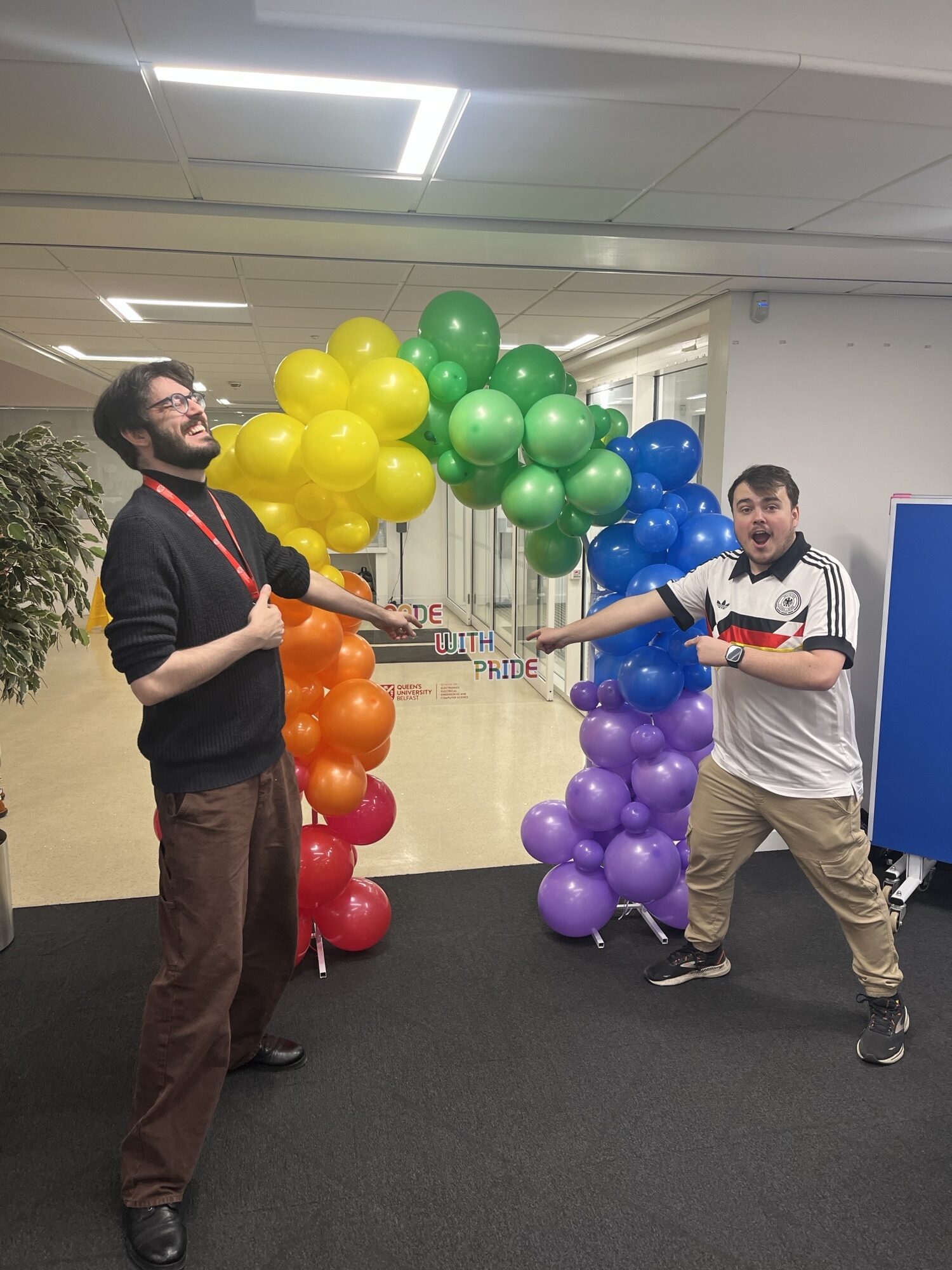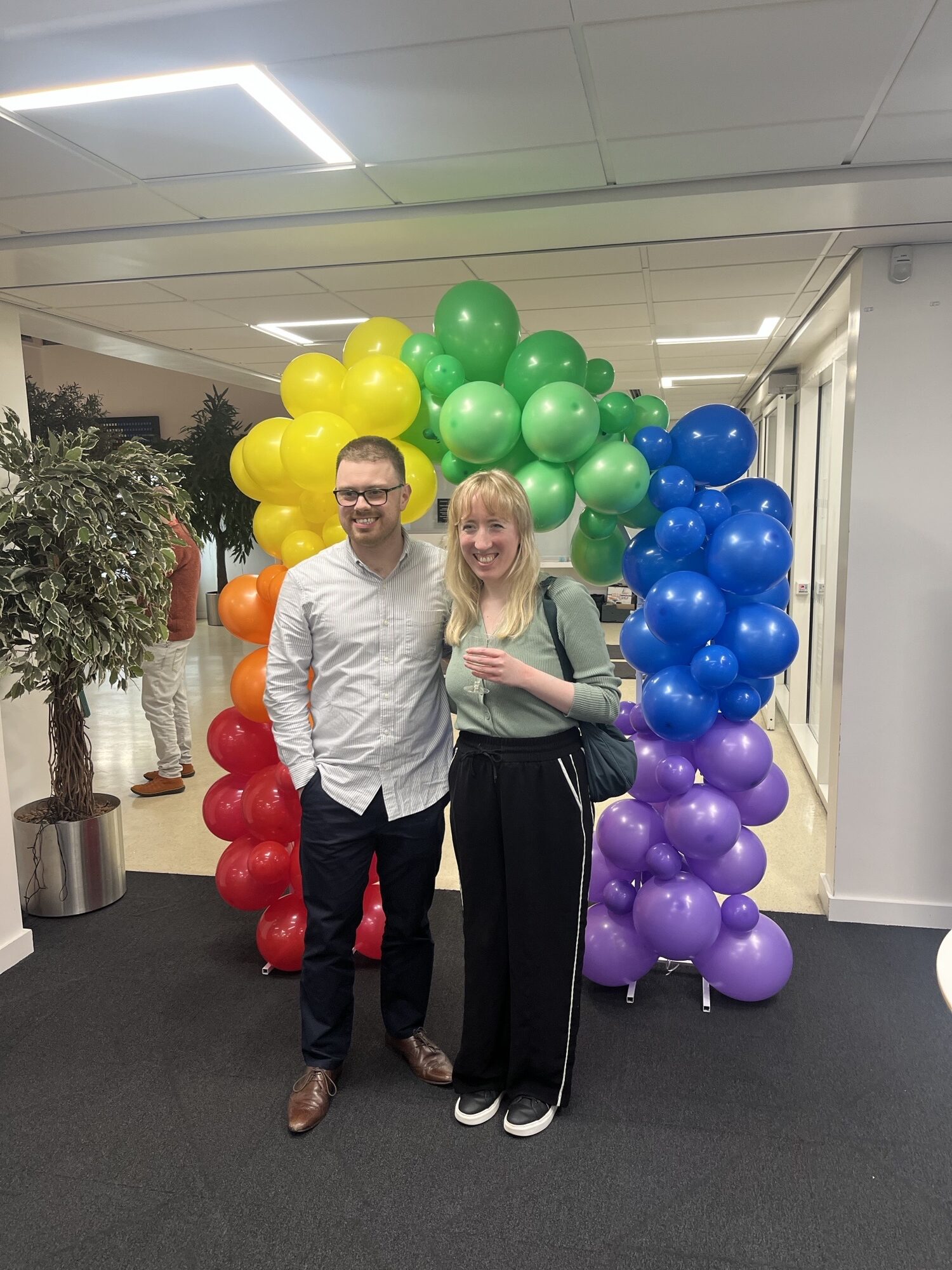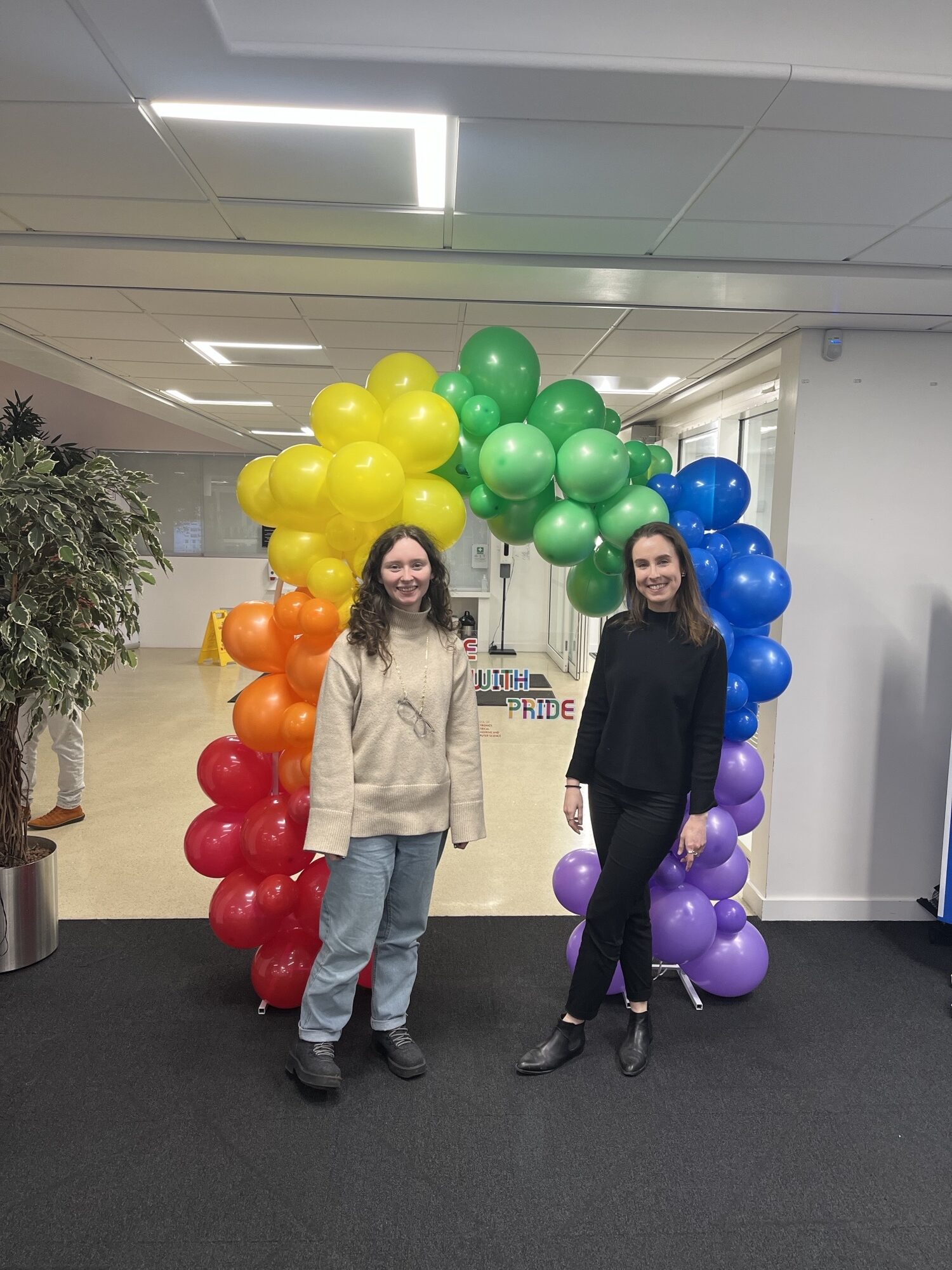Code With Pride
Small Grants awardee Jonathan Browning.
In February 2024, we ran “Code with Pride“, a beginner-friendly programming workshop designed specifically for LGBTQ+ people. Hosted at a UK university, this three-hour evening event aimed to create a welcoming, queer-affirming space for anyone curious about coding, with no prior experience required. While the event wasn’t designed with gender balance in mind, it yielded an outcome rarely seen in software education: a nearly even split between male and female participants. The event attracted 46 registrants, of whom 25 attended on the night. Promotion was done mainly through social media, with open access for adults over 18, to allow for socialising outside of the typical LGBTQ+ socialising opportunities.
What did we do? Participants were guided through Python basics using live coding, interactive walkthroughs, and lots of opportunities to ask questions and try things for themselves. The atmosphere was informal and affirming, with visible LGBTQ+ cues such as rainbow lanyards, optional pronoun sharing, and an emphasis on peer support. Food, drinks, and opportunities to chat between coding sessions helped further cultivate a sense of safety and connection.
The results were overwhelmingly positive. A post-event survey, completed by 15 attendees, showed that: 93% were attending a programming event for the first time; 87% rated the session 5 out of 5 for satisfaction; 73% said the event exceeded their expectations and the average likelihood to recommend the event to a friend was 9.4 out of 10. Perhaps most significantly, 100% of respondents said they would be interested in attending more events like this. Many highlighted not just the learning opportunity, but the chance to connect with others in a friendly, inclusive environment. Top reasons people cited for enjoying the evening included learning something new, socialising, meeting new people, and of course free food and drinks!
What we found most affirming was how centring LGBTQ+ inclusion had broader ripple effects. We didn’t mention gender in the promotion or event design, but by cultivating psychological safety and visibility for queer learners, we attracted a gender-balanced group, something typically only achieved through specific outreach or quotas. Personally, and professionally, the event was a reminder of the power of intersectional design. By focusing on LGBTQ+ visibility and belonging, we didn’t just support one marginalised group, we created a learning environment where a wider range of people felt safe, welcomed, and seen.
The event was supported by the Pride in STEM Small Grants Fund, and we are incredibly grateful for this support. Without it, we couldn’t have provided the catering, inclusive signage, or student demonstrators that helped create such a welcoming atmosphere. We’re now exploring ways to embed this kind of programming more regularly into our university’s outreach and teaching practices. As part of our dissemination efforts, we have a conference paper that has been accepted based this work.

